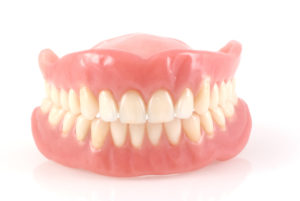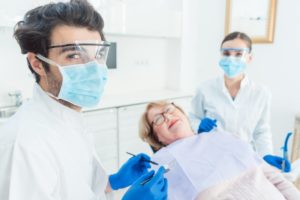 While you have been staying home to prevent the spread of COVID-19, you have probably been contemplating which places are safe and which you should be avoiding for the time being. You aren’t alone. One location that you certainly don’t need to be worrying about is your dental office. In fact, the American Dental Association (ADA) expresses that oral health is integral to your overall health, making dentistry and essential health care. Continue reading to learn more from your dentist in Lovell about why it is safe to go back to the dentist for your regular appointments.
While you have been staying home to prevent the spread of COVID-19, you have probably been contemplating which places are safe and which you should be avoiding for the time being. You aren’t alone. One location that you certainly don’t need to be worrying about is your dental office. In fact, the American Dental Association (ADA) expresses that oral health is integral to your overall health, making dentistry and essential health care. Continue reading to learn more from your dentist in Lovell about why it is safe to go back to the dentist for your regular appointments.

 Mothers around the world and the CDC have both endorsed regular handwashing as a key component of staying healthy. Regular handwashing is important for preventing sicknesses like the common cold and the flu, and keeping germs at bay is more important now than ever. Whether you’re at home or out practicing social distancing, everyone should be utilizing excellent hand hygiene.
Mothers around the world and the CDC have both endorsed regular handwashing as a key component of staying healthy. Regular handwashing is important for preventing sicknesses like the common cold and the flu, and keeping germs at bay is more important now than ever. Whether you’re at home or out practicing social distancing, everyone should be utilizing excellent hand hygiene. 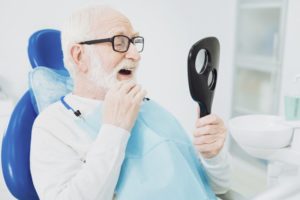 If age, lung problems, or a weakened immune system make you vulnerable to experiencing severe symptoms from COVID-19, then you may be considered a high-risk patient. While preserving your health is crucial in a pandemic, regular visits to your dentist can ensure that your oral care is intact and that there are no dangerous oral symptoms present (i.e., abnormal swelling, unusual dark spots, etc.). If you require dental care but are feeling some anxiety around your next appointment, here are four things your dentist is doing to care for a
If age, lung problems, or a weakened immune system make you vulnerable to experiencing severe symptoms from COVID-19, then you may be considered a high-risk patient. While preserving your health is crucial in a pandemic, regular visits to your dentist can ensure that your oral care is intact and that there are no dangerous oral symptoms present (i.e., abnormal swelling, unusual dark spots, etc.). If you require dental care but are feeling some anxiety around your next appointment, here are four things your dentist is doing to care for a 
 COVID-19 has changed many aspects of everyday life. It has affected virtually every corner of society, including the dental industry. Many dental offices have temporarily suspended their normal operations and are only offering emergency and urgent care. What, then, should you do if your routine dental treatment has been postponed? A dentist in Lovell is here to provide useful tips for keeping up with dental hygiene through the quarantine. Applying these suggestions will prevent new oral health problems and stop current ones from rapidly worsening.
COVID-19 has changed many aspects of everyday life. It has affected virtually every corner of society, including the dental industry. Many dental offices have temporarily suspended their normal operations and are only offering emergency and urgent care. What, then, should you do if your routine dental treatment has been postponed? A dentist in Lovell is here to provide useful tips for keeping up with dental hygiene through the quarantine. Applying these suggestions will prevent new oral health problems and stop current ones from rapidly worsening.
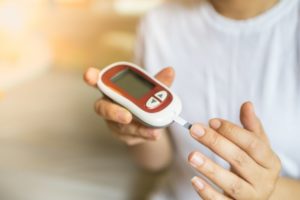 If you didn’t know, November is National Diabetes Month, and it’s time to consider how living as a diabetic can impact your oral cavity. In order to find ways to keep your teeth, gums, and overall well-being in optimal shape, a dentist wants to explain
If you didn’t know, November is National Diabetes Month, and it’s time to consider how living as a diabetic can impact your oral cavity. In order to find ways to keep your teeth, gums, and overall well-being in optimal shape, a dentist wants to explain 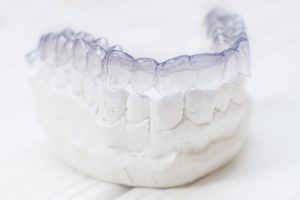 If you’ve watched TV or been on social media recently, you’ve seen ads by SmileDirectClub and other mail-order braces. The latest smile-straightening gimmick claims to safely and effectively move your teeth using
If you’ve watched TV or been on social media recently, you’ve seen ads by SmileDirectClub and other mail-order braces. The latest smile-straightening gimmick claims to safely and effectively move your teeth using 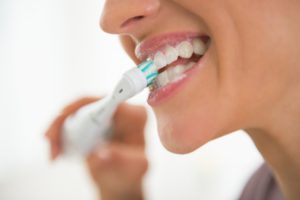 Protecting your smile is a daily challenge, but it can be surprisingly easy to damage your teeth without meaning to. Are you too aggressive when brushing? Or do you chew on objects not meant to be chewed? Doing so could make your teeth more sensitive – and could even eventually lead to tooth loss! To save your pearly whites, it’s important to understand the causes and signs of tooth abrasion.
Protecting your smile is a daily challenge, but it can be surprisingly easy to damage your teeth without meaning to. Are you too aggressive when brushing? Or do you chew on objects not meant to be chewed? Doing so could make your teeth more sensitive – and could even eventually lead to tooth loss! To save your pearly whites, it’s important to understand the causes and signs of tooth abrasion.